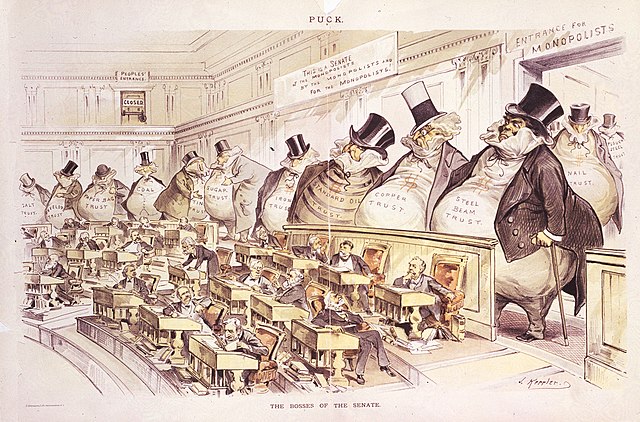United States corporate law
United States corporate law regulates the governance, finance and power of corporations in US law. Every state and territory has its own basic corporate code, while federal law creates minimum standards for trade in company shares and governance rights, found mostly in the Securities Act of 1933 and the Securities and Exchange Act of 1934, as amended by laws like the Sarbanes–Oxley Act of 2002 and the Dodd–Frank Wall Street Reform and Consumer Protection Act. The US Constitution was interpreted by the US Supreme Court to allow corporations to incorporate in the state of their choice, regardless of where their headquarters are. Over the 20th century, most major corporations incorporated under the Delaware General Corporation Law, which offered lower corporate taxes, fewer shareholder rights against directors, and developed a specialized court and legal profession. Nevada has attempted to do the same. Twenty-four states follow the Model Business Corporation Act, while New York and California are important due to their size.

The New York Stock Exchange (headquarters pictured) is the major center for listing and trading shares in United States. Most corporations are, however, incorporated under the influential Delaware General Corporation Law.
"The Bosses of the Senate", corporate interests–from steel, copper, oil, iron, sugar, tin, and coal to paper bags, envelopes, and salt–as giant money bags looming over senators
The state of Delaware is the place of incorporation for over 60 per cent of Fortune 500 corporations. In 1999, from 6,530 publicly traded nonfinancial firms in the US, 3,771 (57.75%) were incorporated in Delaware, 283 (4.33%) in California, and 226 (3.46%) in New York.
In Citizens United v FEC, the US Supreme Court in a 5 to 4 decision removed the power of state and federal legislatures to control unlimited spending by corporations on political campaigns, reasoning that corporations are "persons" under the First Amendment.
A corporation is an organization—usually a group of people or a company—authorized by the state to act as a single entity and recognized as such in law for certain purposes. Early incorporated entities were established by charter. Most jurisdictions now allow the creation of new corporations through registration. Corporations come in many different types but are usually divided by the law of the jurisdiction where they are chartered based on two aspects: whether they can issue stock, or whether they are formed to make a profit. Depending on the number of owners, a corporation can be classified as aggregate or sole.
McDonald's Corporation is one of the most recognizable corporations in the world.
1/8 share of the Stora Kopparberg mine, dated June 16, 1288
"Jack and the Giant Joint-Stock", a cartoon in Town Talk (1858) satirizing the 'monster' joint-stock economy that came into being after the Joint Stock Companies Act 1844
Lindley LJ was the leading expert on partnerships and company law in the Salomon v. Salomon & Co. case. The landmark case confirmed the distinct corporate identity of the company.








